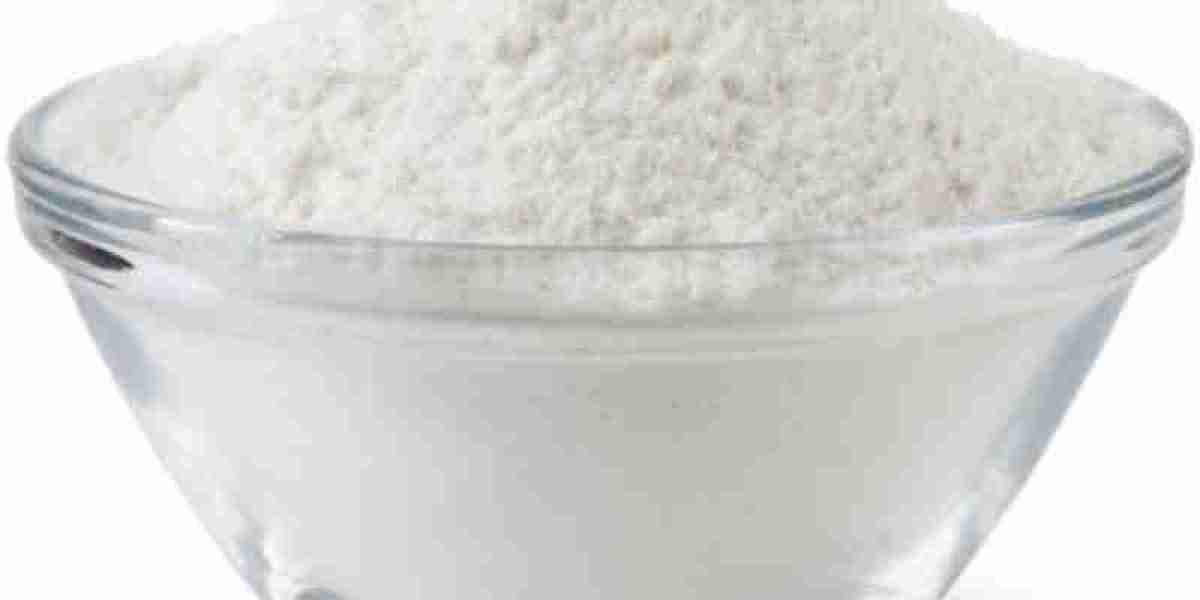Biotechnology companies evaluate the product quality of biochemicals suppliers through a systematic, multi-dimensional process to ensure the reliability, consistency, and compliance of the materials—critical for research accuracy, manufacturing safety, and regulatory adherence. Below is a detailed breakdown of the key steps and criteria involved:
1. Review of Supplier Qualification Documentation
First, companies thoroughly assess the supplier’s formal documentation to verify their technical capabilities and regulatory compliance. This includes:
- Certificate of Analysis (CoA): A mandatory document for each batch of biochemicals. It details test results (e.g., purity, impurity levels, pH, stability) against predefined specifications (e.g., ≥99% purity for a recombinant protein). Companies cross-check CoA data with their own quality standards to confirm alignment.
- Good Manufacturing Practice (GMP) or Good Laboratory Practice (GLP) Certifications: For suppliers serving pharmaceutical or clinical research needs, GMP/GLP compliance is non-negotiable. These certifications demonstrate that the supplier follows standardized processes to minimize contamination, ensure batch consistency, and track materials throughout production.
- Regulatory Compliance Records: Suppliers must provide proof of adherence to regional regulations (e.g., FDA in the U.S., EMA in the EU, NMPA in China) for biochemical production, labeling, and transportation. This includes registration documents for controlled substances (if applicable) and history of regulatory inspections.
- Quality Management System (QMS) Documentation: Suppliers should share details of their QMS (e.g., ISO 9001 certification), including procedures for raw material sourcing, in-process testing, and corrective actions for quality deviations. This reveals how the supplier proactively manages quality risks.
2. In-House Testing and Validation
Even with supplier-provided documentation, biotech companies conduct independent in-house testing to validate product quality, as third-party verification reduces reliance on the supplier’s self-reported data. Common tests include:
- Purity and Identity Verification: Techniques like High-Performance Liquid Chromatography (HPLC) for small molecules, Sodium Dodecyl Sulfate-Polyacrylamide Gel Electrophoresis (SDS-PAGE) for proteins, or Mass Spectrometry (MS) for confirming molecular weight and structural integrity. These tests ensure the product is free from unintended impurities (e.g., endotoxins, heavy metals, residual solvents) that could skew research results or harm bioprocesses.
- Functional Activity Assays: For active biochemicals (e.g., enzymes, antibodies, growth factors), functional tests are critical. For example, an enzyme’s activity might be measured via spectrophotometry to confirm it catalyzes the target reaction at the expected rate; an antibody’s binding affinity to its antigen could be tested using ELISA or Surface Plasmon Resonance (SPR).
- Stability Testing: biochemicals suppliers simulate real-world storage conditions (e.g., temperature fluctuations, light exposure) over time to verify that the biochemical retains its quality and activity. This is especially important for sensitive materials like RNA or cell culture reagents, which may degrade rapidly.
- Contamination Screening: Tests for microbial contamination (e.g., bacteria, fungi via agar plating), endotoxins (via Limulus Amebocyte Lysate (LAL) assay), or mycoplasma (via PCR) are essential—contaminants can invalidate cell-based experiments or compromise biotherapeutic manufacturing.
3. Evaluation of Batch Consistency
Biochemicals used in long-term research or large-scale production must maintain consistent quality across batches. Companies assess this by:
- Comparing Multi-Batch Data: They analyze CoAs and in-house test results from multiple consecutive batches of the same product. Significant variations in purity, activity, or impurity levels (e.g., a sudden drop in enzyme activity from 95% to 80%) indicate poor process control and may disqualify the supplier.
- Tracking Lot-to-Lot Performance: For materials used in critical applications (e.g., reagents for diagnostic kits), companies track how each batch performs in their own workflows. A history of batch failures (e.g., inconsistent assay results) signals unreliability.
4. Supplier Audits (On-Site or Virtual)
For high-priority suppliers (e.g., those providing key raw materials for drug development), biotech companies conduct audits to inspect the supplier’s facilities and processes firsthand:
- On-Site Audits: Teams visit the supplier’s production labs or manufacturing plants to check for compliance with GMP/GLP, proper storage of raw materials, calibration of testing equipment, and adherence to hygiene protocols. They may also interview staff to assess their training and understanding of quality procedures.
- Virtual Audits: Used for geographic convenience or post-pandemic efficiency, these involve remote inspections via video (e.g., touring facilities, reviewing real-time data from testing equipment) and document sharing. While less comprehensive than on-site audits, they still provide valuable insights into the supplier’s operations.
5. Assessment of Supply Chain and Sourcing
The quality of biochemicals starts with raw material sourcing. Companies evaluate:
- Raw Material Traceability: biochemicals suppliers must provide a clear chain of custody for raw materials (e.g., source of cell lines for recombinant proteins, origin of plant extracts for natural compounds). This ensures that raw materials are ethically sourced, free from contaminants, and meet regulatory standards (e.g., compliance with the Convention on International Trade in Endangered Species (CITES) for plant-derived materials).
- Risk Mitigation in Sourcing: biochemicals suppliers check if suppliers have backup sources for critical raw materials to avoid shortages or quality issues caused by supply chain disruptions (e.g., geopolitical conflicts, natural disasters). Over-reliance on a single raw material supplier increases quality and delivery risks.
6. Post-Purchase Performance Monitoring and Feedback
Quality evaluation continues after the product is purchased, as real-world use often reveals hidden issues:
- Tracking In-Use Performance: Teams log how the biochemical performs in daily operations (e.g., consistency in experimental results, absence of unexpected side effects in cell cultures). Frequent complaints or failures trigger a re-evaluation of the supplier.
- Handling Quality Complaints: biochemicals suppliers assess how quickly and effectively suppliers resolve quality issues (e.g., replacing a contaminated batch, investigating the root cause of a purity failure). A supplier that ignores complaints or provides inadequate solutions is unlikely to be retained.
- Long-Term Relationship Tracking: For strategic suppliers, companies conduct annual or bi-annual reviews of their overall performance, including quality metrics, delivery timeliness, and responsiveness to technical queries. Consistent high performance may lead to long-term partnerships, while repeated issues result in supplier replacement.
7. Reference Checks and Industry Reputation
Before finalizing a supplier, biotech companies gather external feedback to validate the supplier’s credibility:
- Reference Calls: They contact other biotech firms, research institutions, or pharmaceutical companies that have worked with the supplier. Questions focus on product quality consistency, supplier responsiveness, and how issues were resolved.
- Industry Reputation: biochemicals suppliers review the supplier’s track record in the industry (e.g., years of experience, awards for quality, presence in peer-reviewed publications as a recommended supplier). Suppliers with a history of regulatory violations or negative customer reviews are typically avoided.
By integrating these steps, biotech companies can rigorously evaluate biochemicals suppliers, minimize quality risks, and ensure that the materials they use meet the high standards required for scientific research, drug development, and biomanufacturing.







